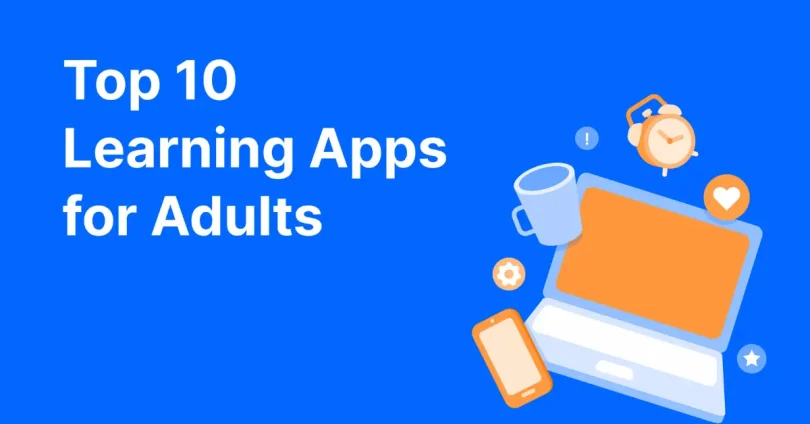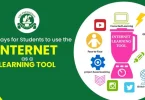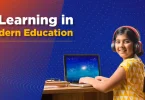Introduction:
In recent years, online learning has transformed the educational landscape, reshaping how knowledge is delivered and accessed. What began as a supplementary tool has now become a central mode of learning for millions around the world. The rise of digital platforms, video conferencing tools, and interactive technologies has made education more flexible, accessible, and personalized than ever before. From virtual classrooms to self-paced courses, online learning has not only broken down geographical barriers but also redefined the roles of teachers and students in the learning process.
Why Online Learning Apps Matter
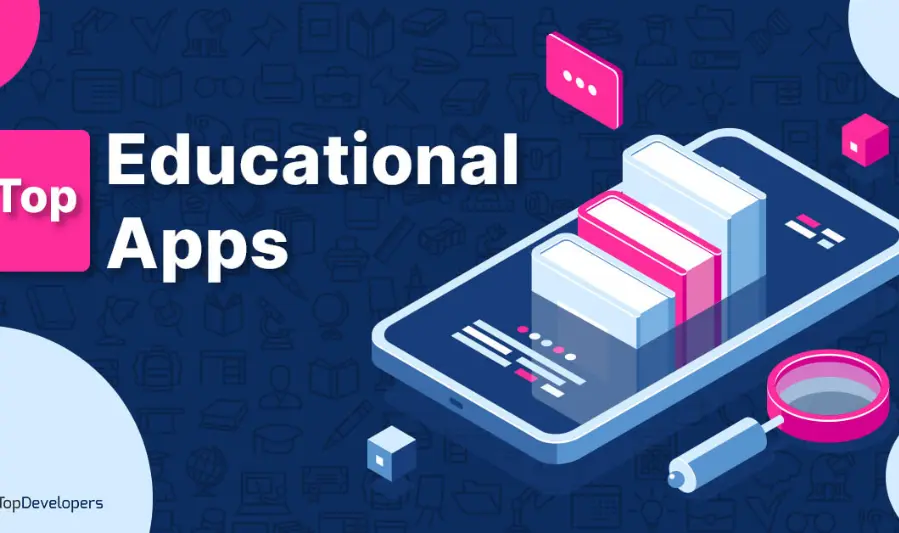
Online learning apps have become essential tools in modern education, offering a wide range of benefits that traditional classrooms often can’t match. One of the biggest advantages is flexibility and accessibility—learners of all ages can study anytime and anywhere, whether they’re in school, working, or managing other responsibilities.
These apps also provide a cost-effective alternative to traditional education, eliminating expenses like commuting, printed materials, and in some cases, tuition fees. This makes learning more affordable and inclusive.
Another key benefit is personalized and self-paced learning. Users can progress at their own speed, revisit challenging topics, and focus on areas that matter most to them. This makes learning more efficient and engaging.
Finally, online learning apps are ideal for remote learning, self-study, and lifelong education, helping people continue their education beyond the classroom—whether to gain new skills, advance their careers, or simply explore personal interests.
How to Choose the Right Learning App (Based on Intent)
With countless learning apps available, choosing the right one can feel overwhelming. However, selecting the best app becomes much easier when you start by clearly defining your goals and preferences.
- Define Your Learning Objectives
Begin by identifying what you want to achieve. Are you aiming for academic improvement, career advancement, personal enrichment, or specific skill-building? Your goal will help narrow down apps that specialize in your area of interest—whether it’s exam prep, coding, language learning, or creative skills. - Identify Your Preferred Learning Method
Everyone learns differently. Some apps focus on video lessons, while others use text-based modules, quizzes, or interactive exercises. Choose a platform that matches your preferred learning style to stay engaged and retain information better. - Decide if Certification or Accreditation is Important
If you’re learning for professional development or job qualifications, look for apps that offer recognized certificates or are accredited by educational institutions. For personal learning, this may be less critical. - Assess Your Available Time and Budget
Consider how much time you can realistically commit each week and what you’re willing to spend. Many high-quality apps offer free versions, but premium features or courses may require a subscription or one-time payment. - Check Reviews and Platform Compatibility
Before committing, read user reviews to get insights on app performance, content quality, and support. Also, ensure the app is compatible with your devices—whether you’re using iOS, Android, or a web browser.
By aligning your choice with your intent, preferences, and resources, you can find a learning app that not only fits your needs but also keeps you motivated and on track.
Best Online Learning Apps Categorized by Application Intent
Online learning apps serve a wide range of educational purposes, from academic success to personal enrichment. Here’s a categorized breakdown of the best apps based on different learning goals:
1. Academic Learning
Apps:
- Khan Academy
- edX
- Brainly
Use Cases:
- Homework help
- Exam preparation
- Subject mastery (math, science, history, etc.)
These platforms are ideal for students seeking support with school subjects, college-level material, or standardized testing.
2. Skill Development and Career Growth
Apps:
- Coursera
- LinkedIn Learning
- Udemy
Use Cases:
- Gaining new job-related skills
- Earning professional certificates
- Transitioning to new career paths
These apps offer courses taught by industry experts and often include certificates that can enhance your resume or LinkedIn profile.
3. Language Learning
Apps:
- Duolingo
- Babbel
- Memrise
Use Cases:
- Learning a new language for work, travel, or relocation
- Practicing daily conversation
- Preparing for language proficiency exams (e.g., TOEFL, DELE, JLPT)
These apps use gamified lessons and spaced repetition to build vocabulary and fluency in fun, bite-sized sessions.
4. Creative and Hobby-Based Learning
Apps:
- Skillshare
- MasterClass
- YouTube Learning
Use Cases:
- Exploring creative skills like photography, writing, music, and design
- Personal enrichment and inspiration
- Starting freelance work or side projects
Perfect for aspiring creatives and hobbyists looking to grow their passion or monetize their talents.
5. Study Tools and Exam Preparation
Apps:
- Quizlet
- Anki
- Socratic by Google
Use Cases:
- Memorizing vocabulary, formulas, and key terms
- Preparing for standardized tests (SAT, GRE, etc.)
- Enhancing study routines with flashcards and AI-powered tools
These tools are excellent for boosting retention and test performance with customizable study aids.
6. Classroom and Education Management
Apps:
- Google Classroom
- Microsoft Teams for Education
- ClassDojo
Use Cases:
- Remote teaching and virtual classrooms
- Managing assignments and educational resources
- Facilitating communication between teachers, students, and parents
These platforms support formal education environments, making it easier to organize and deliver instruction online.
Online Learning Apps Comparison Table
| App Name | Best For | Learning Format | Certification Offered | Price (Free/Paid) | Platforms |
|---|---|---|---|---|---|
| Khan Academy | Academic subjects, K–12 & test prep | Video lessons, exercises | No | Free | Android / iOS / Web |
| edX | College-level courses, professional dev | Video lectures, assignments | Yes (some free, some paid) | Free & Paid options | Android / iOS / Web |
| Brainly | Homework help | Q&A community | No | Free w/ premium features | Android / iOS / Web |
| Coursera | Career skills, professional certificates | Video courses, projects, quizzes | Yes | Free trials / Paid courses | Android / iOS / Web |
| LinkedIn Learning | Job skills, business, creative courses | Video tutorials | Yes | Paid (monthly subscription) | Android / iOS / Web |
| Udemy | Job & tech skills, personal development | Video-based learning | Certificate of completion | Paid per course | Android / iOS / Web |
| Duolingo | Language learning (beginner to intermediate) | Gamified lessons | No | Free w/ premium version | Android / iOS / Web |
| Babbel | Practical language skills | Interactive lessons | No (some offer proof) | Paid subscription | Android / iOS / Web |
| Memrise | Conversational language practice | Video + interactive content | No | Free w/ premium option | Android / iOS / Web |
| Skillshare | Creative skills, hobbies | Video courses | No | Free trial / Paid membership | Android / iOS / Web |
| MasterClass | Creative & lifestyle learning | Celebrity-led video classes | No | Paid subscription | Android / iOS / Web |
| YouTube Learning | General learning, DIY, creative skills | Free videos | No | Free | Android / iOS / Web |
| Quizlet | Memorization, vocab, flashcards | Flashcards, quizzes | No | Free w/ premium features | Android / iOS / Web |
| Anki | Spaced repetition, memorization | Flashcards | No | Free (desktop) / Paid (iOS) | Android / iOS / Web |
| Socratic | Homework help via AI | AI-driven Q&A + explanations | No | Free | Android / iOS |
| Google Classroom | Remote teaching & assignments | Digital classroom tools | No | Free (with Google Workspace) | Android / iOS / Web |
| Microsoft Teams (Edu) | Online classes & collaboration | Video, chat, assignments | No | Free (with Office 365 Edu) | Android / iOS / Web |
| ClassDojo | Parent-teacher communication, behavior | Messaging, classroom management | No | Free | Android / iOS / Web |
Tips for Successful Online Learning
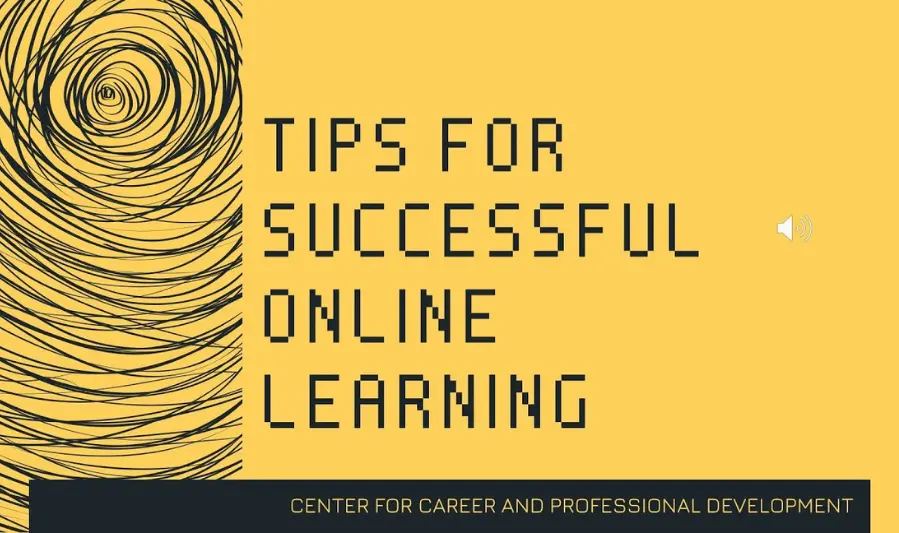
Succeeding in an online learning environment takes more than just downloading an app—it requires strategy, discipline, and good study habits. Here are key tips to help you stay focused and make the most of your learning experience:
1. Set Clear Goals and Deadlines
Define what you want to achieve before you start. Break larger goals into smaller, manageable tasks, and set deadlines to stay on track and motivated.
2. Create a Dedicated Study Space
Designate a quiet, comfortable area just for studying. A clean and organized space can improve focus and help signal your brain that it’s time to learn.
3. Minimize Distractions
Put your phone on silent, turn off notifications, and use website blockers if needed. Limit multitasking and let people around you know when you’re in study mode.
4. Take Regular Breaks and Review Content
Use techniques like the Pomodoro Technique (study 25 minutes, break for 5) to maintain energy and attention. Don’t just move on—regularly review past material to reinforce learning.
5. Use Multiple Apps for a Comprehensive Approach
No single app does it all. Combine platforms to enhance your learning—watch lectures on Coursera, review with Quizlet, and reinforce concepts with Anki or Socratic.
you may also like to read these posts:
Best Business Computers in 2025: Performance & Reliability
Powerful & Compact: Best Portable Mini PCs for Work
Exploring Various Budgeting Strategies to Take Control of Your Money
The Process of Using Online Tools for Effective Learning
best apps for online learning (application intent)
Final Thoughts
Online learning has opened up endless possibilities for learners of all backgrounds—but to truly benefit, it’s important to align your learning tools with your personal goals. Whether you’re aiming to boost academic performance, build new skills, or explore a creative passion, choosing the right apps based on intent can make your journey more effective and rewarding.
Don’t be afraid to experiment with different platforms until you find the combination that works best for your learning style and schedule. What works for one person may not work for another—and that’s okay.
Above all, remember that consistency and clear intent are the real keys to success. Set your goals, stay focused, and take steady steps forward. With the right mindset and tools, meaningful learning can happen anywhere.
Faqs:
What is the best free app for online learning?
Khan Academy is one of the best free online learning apps, especially for academic subjects. Duolingo is excellent for free language learning, while Coursera and edX also offer free versions of many courses.
Can I get a job using skills learned from these apps?
Yes, many online learning apps like Coursera, LinkedIn Learning, and Udemy offer industry-recognized certificates and job-relevant skills. However, your success also depends on how you apply those skills in real-world situations or portfolios.
Are online learning apps effective for school students?
Absolutely. Apps like Khan Academy, Brainly, and Google Classroom are widely used by students from elementary to high school. They are effective for homework help, subject revision, and exam preparation.
Do I need a certificate to prove my learning?
Not always. If you’re learning for personal growth or a hobby, a certificate isn’t necessary. But for professional or career advancement, a certificate from platforms like Coursera or LinkedIn Learning can add value to your resume.
How can I stay motivated while learning online?
Set clear learning goals, create a study schedule, track your progress, and use interactive apps that keep you engaged. It also helps to join online forums or study groups related to your learning topic.
Conclusion:
Online learning has opened up endless opportunities for anyone with the curiosity to grow, the ambition to upskill, or the need to adapt in a changing world. Whether you’re a student preparing for exams, a professional aiming to advance your career, or someone exploring new hobbies, there’s an app tailored to your goals.
The key to successful online learning lies not just in choosing a popular app — but in choosing one that aligns with your intent. Understanding why you’re learning helps you pick the right tools, stay motivated, and make the most of your time and effort.
From academic platforms like Khan Academy to career-focused tools like Coursera and creative learning hubs like Skillshare, the digital learning landscape is rich with potential. Start with clear goals, explore what works best for you, and let technology support your journey of continuous learning.

